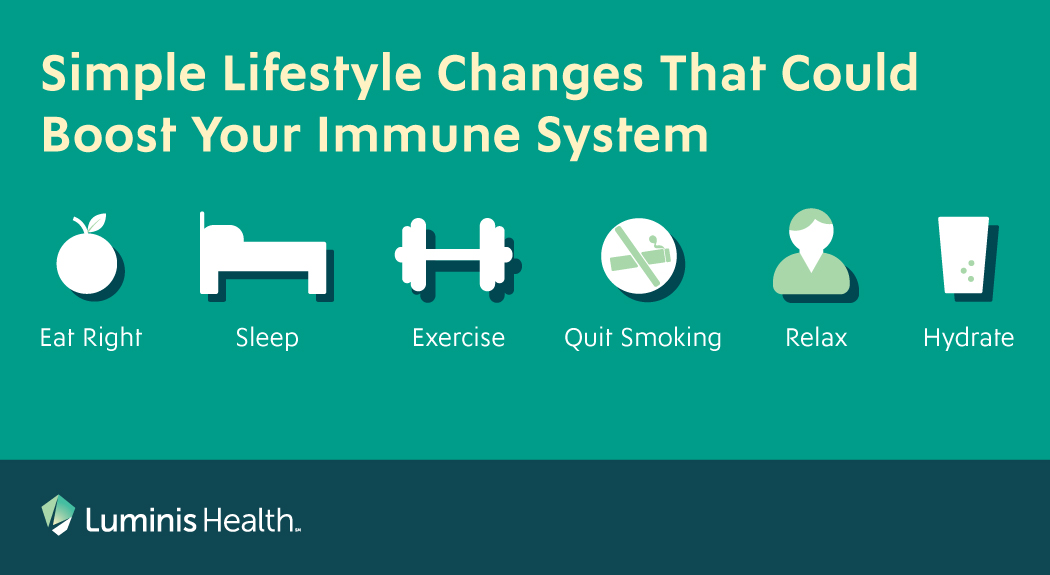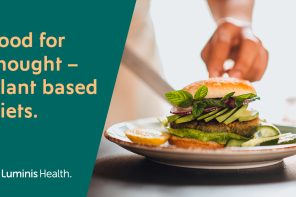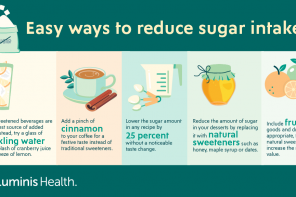Now more than ever, it’s important to do everything you can to stay healthy. And you may have wondered if there are ways to boost your immune system.
There’s still much research to be done on the link between your nutrition and lifestyle choices, and your immune system. But here’s what we know now.
Your Nutrition Choices
You’ve probably seen supplements at the grocery store that claim to support your immune system. But remember this – nutrients work together, so having too much of one nutrient might undermine how effective another one is. Also, unless you are malnourished or have a disease affecting how you absorb nutrients, there’s no evidence that suggests adding extra supplements beyond what you already eat will help.
Instead, stick to a healthy diet with a balanced amount of protein, vitamins and other minerals and nutrients.
Protein. The body uses protein to build and repair tissues, plus make hormones and enzymes that promote the body’s daily functions. You can get protein from meats, fish, beans, cheeses, eggs, peanut butter, nuts and dairy products.
Vitamin A. This fat-soluble vitamin also supports vision, reproduction and healthy organ function. You can get vitamin A from poultry, fish, potatoes, leafy green vegetables and non-citrus fruits.
Vitamin C. This water-soluble vitamin supports wound healing and acts as an antioxidant to protect cells. You can get vitamin C from citrus fruits, tomato juice, broccoli, strawberries and cantaloupes.
Folate and folic acid. These help create and repair cell’s DNA in your body. Folate and folic acid are in leafy green vegetables, beans, peas, Brussels sprouts and fortified cereals.
Selenium. This is a mineral that also supports thyroid gland function and DNA production. You can find it in seafood, poultry, eggs, dairy, meat and whole grains.
Zinc. This nutrient supports cell creation and wound healing.
Vitamins E, D, B6 and iron could also help support your immune system.
Your Lifestyle Choices
Your lifestyle can also play a role in how often you get sick. Here are some things you should do to help keep your immune system in top shape.
Sleep. You need sleep to rest and recharge. Without it, you increase your risk for developing serious health problems, such as Alzheimer’s disease, obesity and heart disease.
Exercise. Exercise is an essential part of a healthy lifestyle. It improves your cardiovascular health, controls your weight, lowers your blood pressure, reduces your risk of many cancer types and protects you from a variety of other diseases. Exercise also promotes good circulation, which allows cells and substances to move through the body and do their job most effective. That helps your immune system.
Quit smoking. Smoking increases your risk of infections such as pneumonia and flu. Studies show you could also be at greater risk of developing a severe case of COVID-19 if you smoke or vape.
Lower your stress. This year has been full of uncertainty. But it’s still important for you to take care of yourself, because your immune system can weaken when you’re stressed out. Focus on what you can control, instead of what you can’t.
There is no magic food or nutrient that can stop you from getting sick.
But a balanced diet will help support your immune system – which will help your body fight off infections and diseases.
Butternut Squash and Kale Soup
This hearty soup is full of vitamins A, C and B6.
Ingredients
1 large sweet onion, cut into wedges
4 cups of cubed butternut squash (cut into 3/ 4 inch cubes)
1 tablespoon of olive oil
Fresh ground black pepper to taste
1 teaspoon of dried thyme
1 14.5-oz. can of low sodium chicken broth
3/ 4 cup of water
3 cups of chopped kale
Directions
Preheat oven to 425 degrees Fahrenheit.
Line a large baking pan with aluminum foil and spread onion and squash over foil in a single layer. Drizzle vegetables with olive oil and toss lightly to coat; then season with pepper and thyme. Place in oven and bake for 30-35 minutes, or until vegetables are cooked through and starting to brown. Note: take vegetables out at least one during cooking to stir.
Combine roasted vegetables, chicken broth and water in a large saucepan and use an immersion blender to blend ingredients together until smooth. If you don’t have an immersion blender to make this soup, you can use a regular blender to blend the vegetables and the liquid together.
Heat blended soup over medium heat until heated through, then stir in kale and cook until wilted, about three minutes.
Recipe courtesy of the Diabetes Food Hub.
 Ann Caldwell is a nutritionist and registered dietitian at Anne Arundel Medical Center. To reach her, call 443-481-5555.
Ann Caldwell is a nutritionist and registered dietitian at Anne Arundel Medical Center. To reach her, call 443-481-5555. 



